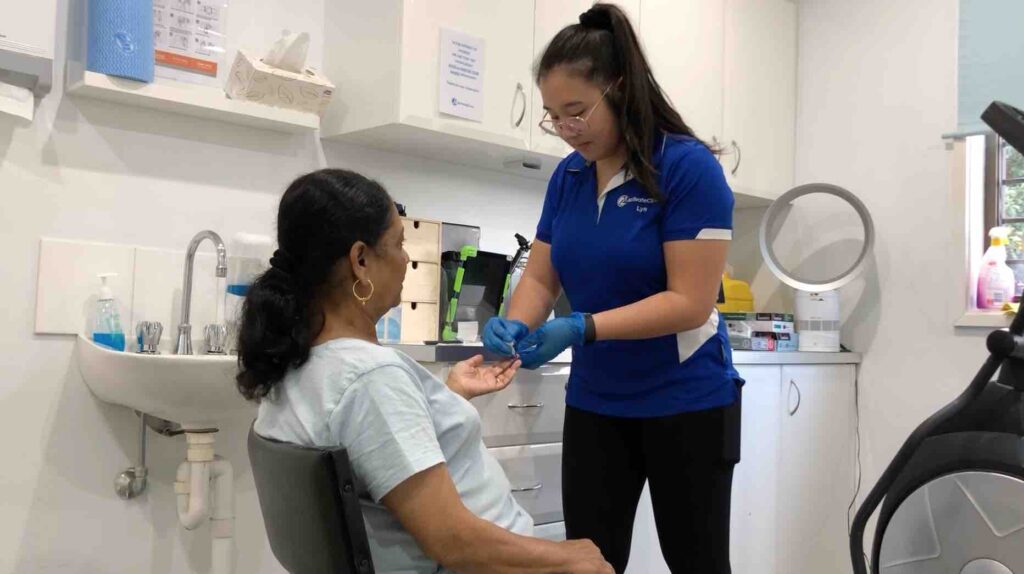When a client is serious about weight loss, we often need to look beyond just the weight on the scale. The scale only shows TOTAL BODY MASS which does not differentiate between muscle and fat. However, when most people chase weight loss (or the doctor encourages weight loss) they usually are referring to fat loss.
At Activate Clinic, we have tried to get more objective measures to provide you feedback on your diet and exercise journey for the goal of “weight loss” (fat loss).
One of the best measures we have is blood ketones. Currently, that is done using the purple strips at the clinic and although related, it is different to measuring blood glucose (blood sugar).
WHAT ARE KETONES?
β-hydroxybutyrate is a molecule that is produced in the liver when stored fat is converted into free fatty acid. That is, the body has taken fat out of storage, and made it available as energy for the brain, muscles and organs.
(From Wikipedia)
In epilepsy patients, blood β-hydroxybutyrate levels correlate best with degree of seizure control
WHAT RESULT INDICATES FAT LOSS?
Most people start at 0.0 or 0.1 mmol/L using our measuring device. That level indicates that the primary fuel source for the body is coming from food ingested recently. We know this because ketone levels will drop or reset once insulin is released. Insulin is released when there is an increase to blood sugar following a meal.
For fat loss, we aim for ketone levels >0.3 mmol/L but it can increase up to 1.9mmol/L (that’s the highest we have recorded but it can actually go even higher)
FACTORS THAT AFFECT KETONE RESULTS
1. Lower ketones early in the morning or when resting
Ketones build as the body produces more ketones from breaking down fat storage. So, the number will usually increase following activity. If you test the first thing in the morning, the result will usually be lower than later in the day.
2. Keto adaptation increases ketone production efficiency
There is also a concept called “keto-adapted” which means that your body becomes more efficient at breaking down stored fat and you can get faster increases in ketone levels.
3. High Sugar or High Carbohydrates reduce ketones
Diets that have high sugar or higher carbohydrate volumes will reduce the need for the body to remove fat from storage to be used as fuel.
4. Insulin resistance reduces ketone production
If you are insulin resistant, your blood sugar will stay higher for longer after you eat carbohydrates which will reduce the need for ketone production.
WHAT YOU SHOULD DO NOW?
We don’t really like to preach radical change. We are happy to continue to monitor your blood sugar and blood ketones but that is mostly to provide feedback on how your diet can help you reach your goals faster.
Exercise is a vital part of the equation and elevated ketone scores are most helpful at getting the most out of your exercise session. So without exercise (especially resistance exercise) your energy expenditure will be lower and will make it a lot harder for your body to get rid of stored fat.
So keep exercising, keep learning about your body and don’t let your brain trick you into too many moments of weakness.
You can do this, and we are ready to help you however we can.
